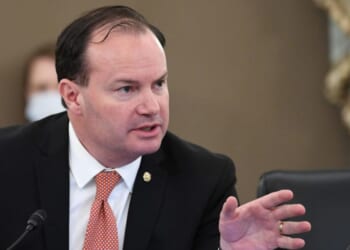Tim Eagle is the Scottish Conservative and Unionist MSP for the Highlands and Islands, and Shadow Cabinet Secretary for Rural Affairs and Fishing. He is the candidate for Moray in the upcoming Scottish Parliament election.
I have lived in Buckie for many years, and the importance of the fishing industry to my community, and many others like it, cannot be overstated.
For Buckie, fishing is woven into the fabric of the community, with skills passed down from generation to generation. It is a testament to the resilience, skill and connection to nature that everyone involved in the sector possesses.
That same passion for the sector is etched into the being of every Conservative, and throughout history, we have been stoic defenders of the fishing industry.
Whether under Margaret Thatcher, who often clashed with the EU to defend British fishing interests by defending the 6-mile to 12-mile limit from further EU encroachment. It was her government that invested heavily in Peterhead port to modernise the fleet and processing industry. Or under John Major, who targeted the so-called ‘quota hoppers’ from the EU, a problem which sadly still exists to this day.
Even in more recent history, the last Conservative government ensured that the fishing industry was protected during the pandemic, considering it a critical food sector, and providing vital financial support.
Despite our many achievements, some of our actions in government have not always reflected that support for the fishing industry, and I have been very open about my belief that the TCA deal that our party negotiated with the EU did not fully put our industry first, and it gave away too many concessions to the EU.
Brexit allowed the UK to take full control over its coastal territory, but we did not deliver on that ambition. For that, we reflected and have committed to doing better when we return to government.
For the here and now though, the fishing industry faces a trident of challenges that we must overcome.
The first prong, is the UK Labour Government, who slavishly surrendered control of our waters to the EU in a shameful 12-year deal. This is a deal which was described by Elspeth Macdonald, the Chief Executive of the Scottish Fishermen’s Federation as “a total capitulation to the EU and a disastrous outcome for the Scottish fishing fleet.”
She is right. The Labour Government had the opportunity of a lifetime to secure an improved deal, which reduced EU access to our waters and empowered our domestic fleet, but it was sacrificed on the altar so that Keir Starmer could seek concessions elsewhere.
The second prong, is the SNP Scottish Government, who not only remain obsessed with pitting Scots against one another with a second independence referendum, but if they were to ever achieve separation, they would drag Scotland back into the hated Common Fisheries Policy (CFP).
This is a policy that locked our fishing industry into a continuum of red tape, over-regulation, and measures which harmed our industry at the benefit of the fishing industries of neighbouring EU states. That’s why the Scottish Conservatives have always staunchly opposed it.
So many of our coastal constituencies voted in large numbers for Brexit, and then subsequently voted Scottish Conservative, to send a message to the SNP that they do not want Scotland or the UK to be part of the CFP ever again.
The third prong is the European Union, who will not see Starmer’s dodgy deal as the end point. Be under no illusion, the EU want more access to our waters, and they will be under constant pressure from states like France and Spain to seek an even worse deal for our domestic fleet.
EU vessels continue to breach existing rules, and I have heard countless stories from our hardworking fishermen that EU boats continue to dodge quotas, avoid monitoring by turning off their AIS equipment, and breaking their economic link commitments by landing more of their catch at EU ports rather than Scottish ports.
So how do we defend our industry against this three-pronged trident attack?
The Scottish Conservatives, with Russell Findlay at the helm, are at the forefront, engaging with the Scottish fishing industry, learning the lessons of where we went wrong while in government, and bringing forward meaningful solutions that we would want to implement when we return to government.
On Labour, our team of Scottish Conservative MPs, including our fantastic Shadow Secretary of State for Scotland Andrew Bowie, are taking the fight to Starmer’s failing Labour administration in Westminster. Four of our five Scottish MP’s represent coastal constituencies, and they understand how important the sector is to the many towns and villages along their sealines.
On the SNP, the Scottish Conservatives prevented the SNP from securing a majority at the last Scottish election, denting their drive for a second referendum in the process. We have seen off two failed First Ministers, and under Russell Findlay’s leadership, we use our voices in Holyrood to effectively fight for more funding for fishermen and the processing sector, while the SNP debate niche issues like independence.
On the EU, we are the only mainstream political party that accepted the result of the 2016 referendum result, and we have made it abundantly clear that when we return to government again, we will never seek to re-enter the EU, or any of its damaging frameworks like the Common Fisheries Policy, and we would reverse Keir Starmer’s dodgy deal.
For now, our fantastic fishing industry is at the mercy of Labour, the SNP and the EU, but it is the Conservatives who have the solutions to defend it.
We must recognise and be open about where we went wrong while in government. Fishermen are not daft, and they rightly call us out for our mistakes.
But we must once again make the case to our coastal communities, that it is only the Conservatives, with Russell Findlay and Kemi Badenoch in charge, who back the fishing industry against over-regulation and against increasing EU access to our waters.
If we can make that case, and outline policies that align with that case, we can defend against that trident of challenges and win over fishing communities again.




![Steak ’n Shake Mocks Cracker Barrel Over Identity-Erasing Rebrand [WATCH]](https://www.right2024.com/wp-content/uploads/2025/08/Steak-n-Shake-Mocks-Cracker-Barrel-Over-Identity-Erasing-Rebrand-WATCH-350x250.jpg)




![Mount Rushmore Could Get Trump Upgrade Under GOP Push [WATCH]](https://www.right2024.com/wp-content/uploads/2025/07/Mount-Rushmore-Could-Get-Trump-Upgrade-Under-GOP-Push-WATCH-350x250.jpg)
![Soros Network, Others Behind LA Riots [WATCH]](https://www.right2024.com/wp-content/uploads/2025/06/Soros-Network-Others-Behind-LA-Riots-WATCH-350x250.jpg)




